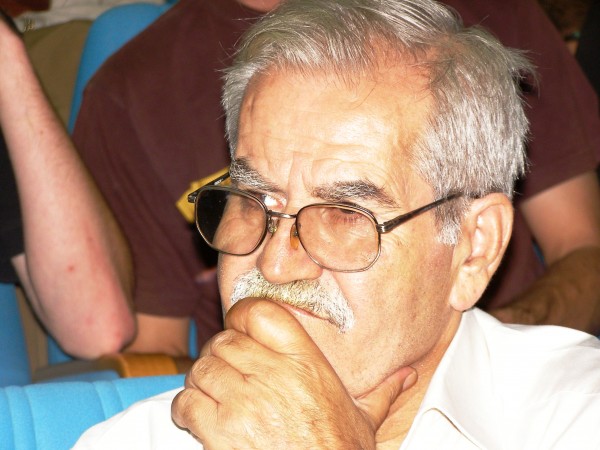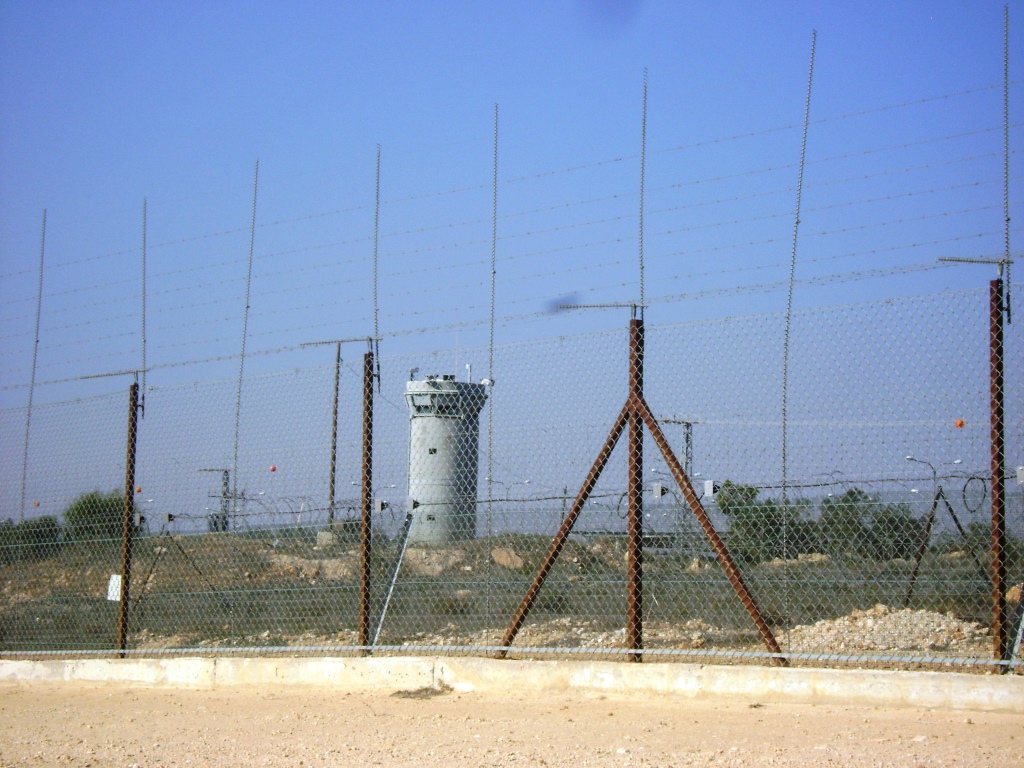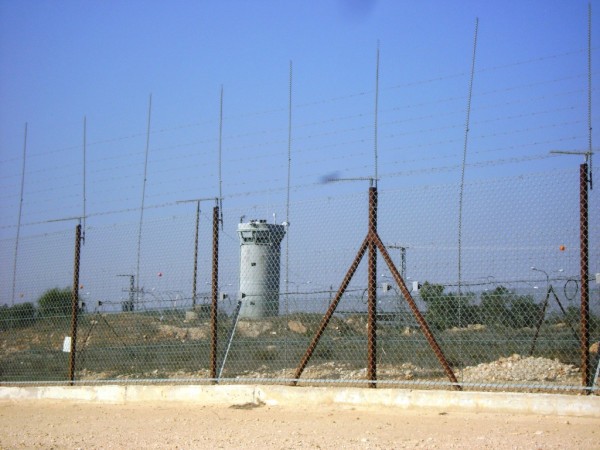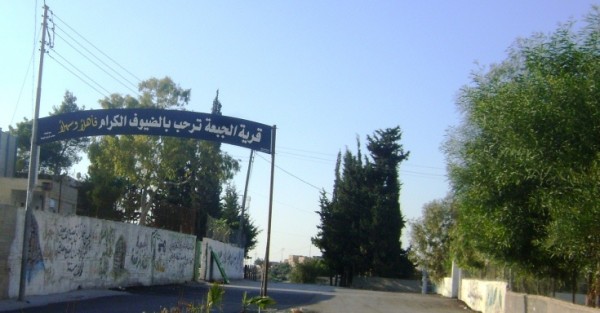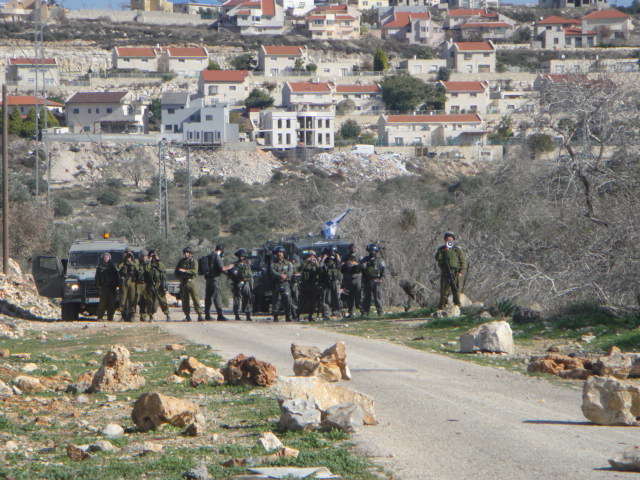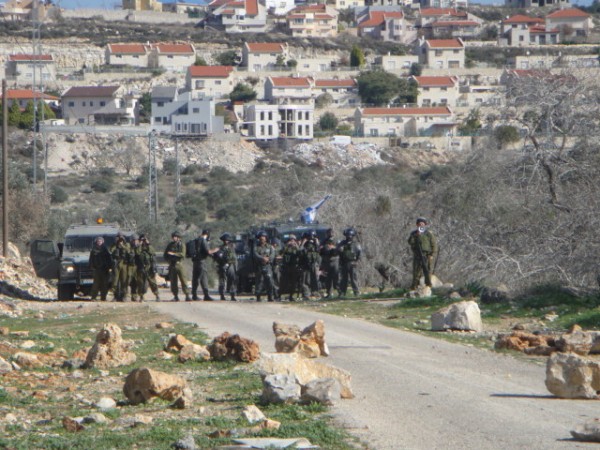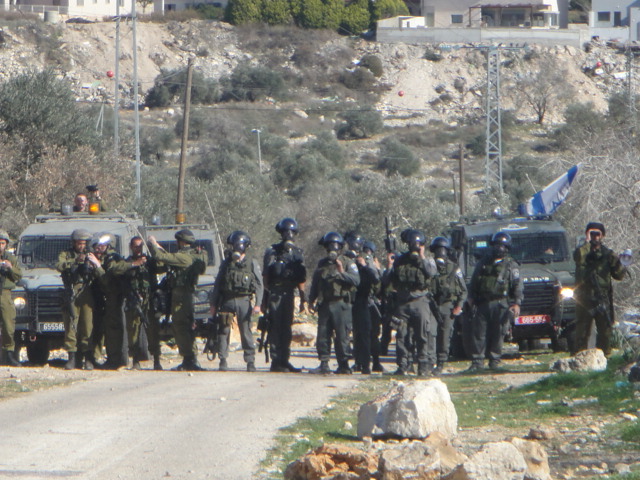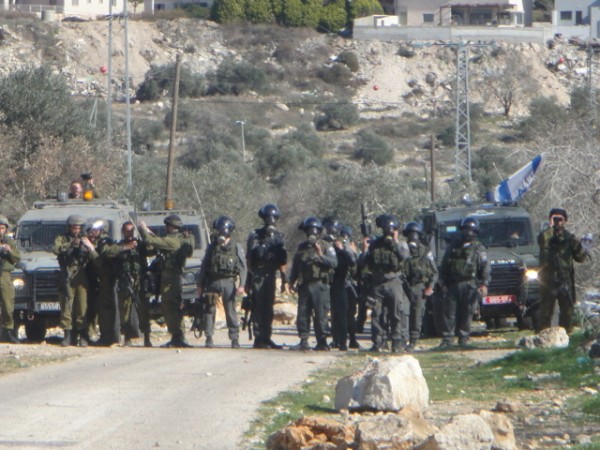26 December 2011 | International Women’s Peace Service
The 18th of December was a day of reunion and celebration for many in Palestine. Following a tense wait, several delays and tear-gas attacks by the Israeli Occupation Forces (IOF) on their waiting families, 550 Palestinian prisoners were released from Israeli jails to be reunited with their families and friends. SH was one of these lucky few exchanged for the IOF soldier Gilad Shalit – many thousands of Palestinian political prisoners remain imprisoned.
Eight years previously, during the Second Intifada, SH – a 27 year old villager of Kifl Haris – had been imprisoned for his political activities against the occupation. He was a member of the Fateh political party and was involved in organising resistance. We spoke to him on 26thDecember, 8 days after his release, in a room full of his family and friends, who were still gathering to celebrate. The house was festooned in flags, bunting and the celebratory poster published by Fateh on his release.
He told us that in 2002, a warrant was put out for his arrest. Whilst he managed to evade the Israeli authorities for a year and a half by moving around regularly, in November 2003 they caught up with him, arresting him at the house of a friend. He told us how he was taken to an Israeli interrogation centre and held for questioning for two months – here he said that the physical and psychological torture began from the first moment he arrived.
For the first seventeen days, SH said that he was held in solitary confinement – seeing only one policeman and his interrogator. He only found out how long he had been held afterwards, as his cell had no windows, meaning he had no concept of night and day. The disorientation was compounded by enforced sleep deprivation – he would be woken by the guard every time he managed to fall asleep, or he would be tied to a chair, the discomfort making sleep almost impossible. He recalled occasions when he had not been allowed to sleep for 5 days or more and how he came to consider one or two hours hours of sleep a luxury. These tactics are internationally considered as torture, and are a well known method of exhausting and confusing prisoners to extract confessions.
He then told us how he was also beaten during his interrogations – hit, kicked and beaten with sticks. SH was unwilling to go a lot of detail, the memories must be painful, and his elderly mother was present. During this time he was asked many questions about his involvement with the Fateh movement, his friends and co-party members and his actions against the occupation. He was regularly asked to sign a document in Hebrew which he was told was a confirmation of the statements he had made under interrogation. Each time he refused – requesting a translation into Arabic – the mistreatment would continue. On the 18thday, he was removed from solitary confinement and allowed to socialise with some other prisoners. However, he told us that Palestinian collaborators with the Israeli forces are common in these interrogation centres and – unsure who was friend and who foe – this was the time when he felt most at risk. He said that he had known other prisoners to be killed by collaborators.
On the 20th day, the Red Cross were allowed to visit – although as SH was aware of the presence of so many collaborators, this made him suspect that they may not truly have been Red Cross representatives, but he cannot be sure. What he does know is that a letter to his family did not arrive for a further three months, during which time they had no idea whether he was in hiding and unable to contact them, or whether he had been arrested. When the Red Cross letter eventually arrived, they were naturally devastated- “it was catastrophic – nothing is more sad than this” said SH’s brother.
After the two months of interrogation, SH signed a document which had finally been translated into Arabic. Although the information written on the form was true, he alleged that this information was not in fact what he was eventually charged on in court. However, he had a long wait until he was to find this out – the 23rd of January 2004 was his initial court hearing date. This was delayed for three months, and then delayed a further 7 times – It was over two years later that his hearing actually went ahead.
When the trial eventually occurred, SH says it was a farce. When we asked whether he considered his trial to have been fair, the whole room laughed – “everyone knows they are not fair trials” he said, still laughing. His lawyer was assigned by the Israeli government and he was sentenced to 15 years imprisonment, for attempted murder and organising resistance to the occupation – “they didn’t listen to the evidence, they just decided from what was in their heads” claims SH. Palestinians are sentenced in Israeli military courts rather than civilian, which have been found to rarely comply with international standards of fair trials.
During his sentence he was moved regularly – he remembers maybe four or five different prisons and life was difficult. The fact that he was held in prisons within Israel proper is a violation of the Fourth Geneva Convention which states that “Protected persons accused of offences shall be detained in the occupied country, and if convicted they shall serve their sentences therein” – SH was both detained and served his sentence outside of Occupied Palestine.
When asked about living conditions, SH commented darkly that if we wished to know what conditions were like in Israeli prisons, we need only spend a week there. He and his family stated that if he needed five new items of clothing, one would be permitted, and parcels of clothes from his family regularly did not arrive. The food was apparently neither healthy nor sufficient, and was not allowed to be supplemented by offerings from his family. The living space was shared with 10-12 men, all political prisoners. Because of this, SH says that the reputation that Israeli prisons have for being like a university for Palestinian prisoners is true – having not completed high school previously, SH did so during his time in prison, as well as completing two years of a Political Science degree. Without their freedom, the prisoners turned to books and political debate.
Communication with the outside world was very limited – whilst in theory, family visits were permitted every two weeks, they would regularly be delayed, cancelled or permission would not be granted – when they did go ahead, only one member of the family, SH’s mother, was allowed to visit, and even this was only once every two months at the most.
Tragically, SH’s older brother died whilst he was in prison, in a car accident with an Israeli settler. He told us he was permitted a five minute telephone call – making it impossible to speak to all of his thirteen brothers, four sisters, his parents and many other family members that he desperately wished to have contact with at such a hard time. Letters would take five months to reach his family, if at all, and then a return letter from them would take just as long. Eventually they gave up writing.
Life was also not easy for those who were left behind. Three of his brothers had previously found work within Israel. After SH’s arrest, they were denied the permits that they needed to do so, leaving them without work. This was apparently “for security reasons”, but is a clear form of collective punishment – illegal under international law.
His fiance, to whom he had been engaged before he was arrested, was left in limbo, unsure whether they would ever be able to start their lives together as they had planned. But she waited for his release, and happily their wedding is now planned for this summer.
His mother said that her son’s release was more than the joy of many, many weddings (although naturally she is still looking forward to his!). She and the whole family were relieved and overjoyed when they saw his name on the list of prisoners to be released – published online 4 days before the fact. They had been disappointed in the first half of the Gilad Shalit deal, but had held onto hope. SH himself only discovered that he was to be released 3 days before he was taken to Ramallah and met by his family.
He says that he will continue to be involved in politics and the fight against Palestinian oppression and occupation by Israel.
Names removed for privacy of those involved. For further information please get in touch with International Women’s Peace Service (www.iwps.info) on palhouse@iwps-pal.org or 0597317193


